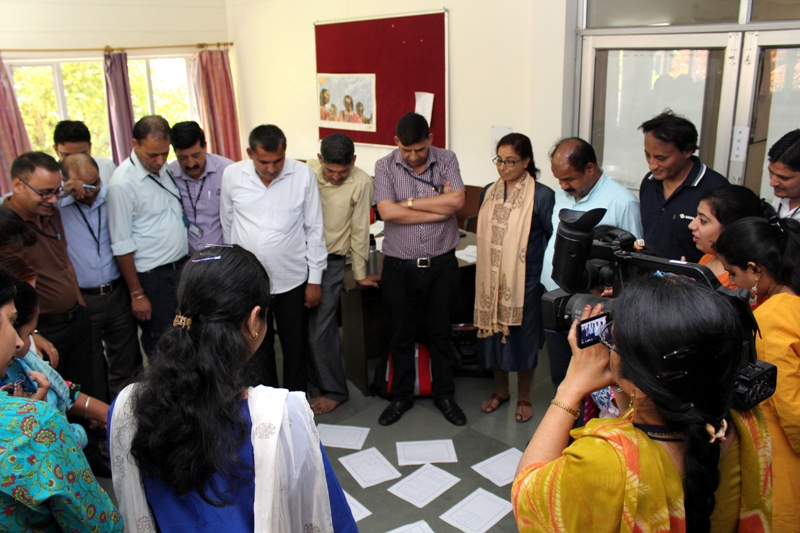Employees, especially women employees need institutional support when it concerns their safety and welfare during their work hours. This need arises from the positioning of women in society at large and the work place in general when relating it to matters of wages, rising in the promotional ladder and them being treated as equal humans. At this point, it is imperative to clarify between gender equity and gender equality –
Gender equity means fairness of treatment for women and men, according to their respective needs.
Gender equality is more than equal representation; it is strongly tied to women’s rights, and often requires policy changes.


Having recognized the difference, typically at a workplace the general attitude towards women is that of equity and not equality. At this point it is fundamentally important to mention that equality precedes equity for the central reality of women being treated as second class citizens from their birth and that every milestone of their lives has witnessed some form of impediment of discrimination on the basis of their gender. Gender sensitization workshops address this issue in detail with tact and balance to achieve equity only after basing the foundation of equality. How do we do that? By commencing trainings on the premise that in society women have different realities on the basis of their sex, and gender finds its way in. Important matters which seem otherwise seem unimportant are taken up in the trainings such as workplace sexual harassment, career growth, maternal/paternal leaves, and humour amongst colleagues. It is essential to understand that an emblematic Indian woman’s professional life is an addition to other bigger reality of being a woman in her home as well, which involves an endless list of duties and responsibilities that are to be fulfilled before she’s at work.
These matters affect a woman’s growth in the organisation as well as their general well-being of an employee by looking beyond the sex and gender of an individual. Therefore the aim of these workshops is to spread awareness on the importance of a gender just environment as well as to heighten awareness of the unconscious gender bias in corporate life.
The Gender Training Institute (GTI) at CSR promotes women’s empowerment through capacity-building and training programs focused on the role played by gender in communities, organizations and government policies. GTI began its work in 1997, grounded in a rights-based approach to gender sensitivity development and this continues to be the foundation of our training methodology. With time, we have developed a robust curriculum, which is routinely tailored to meet the needs of our clients and incorporate relevant law and policy changes.
For more information, please visit our website




